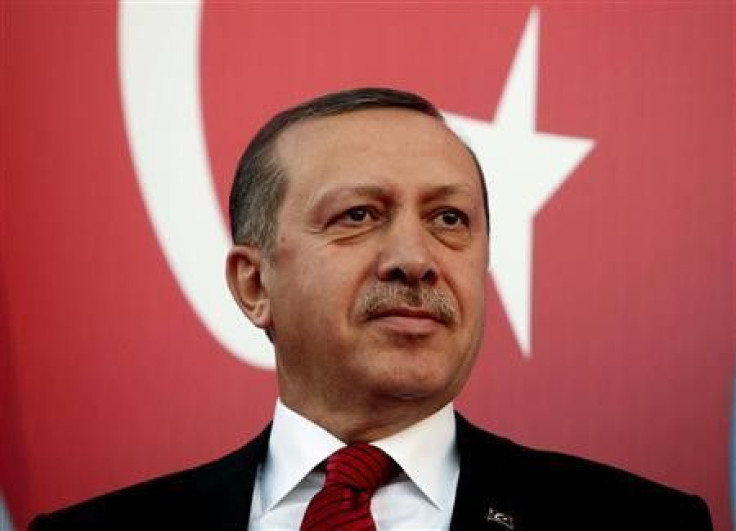Is Turkey's Prime Minister Dying of Cancer?

The Prime Minister of Turkey is in extremely fragile health, according to emails leaked from Stratfor, the U.S. intelligence security analysis firm that has come under fire from Wikileaks and Anonymous hackers.
According to the leaked documents, Recep Tayyip Erdogan is suffering from terminal cancer and has only two years to live.
Wikileaks reportedly released the documents as part of a massive plan to unload thousands of Stratfor material.
Reuters reported that rumors about Erdogan’s health have festered since last November when the Prime Minister underwent surgery on his lower intestines, followed by another procedure in February.
The leaked email indicated that physicians removed an 8-inch portion of Erdogan's colon during the first operation in November. The prognosis is not looking good, though. The surgeon said they were estimating two years for him, according to the Stratfor email.
The source of the information comes from someone named Faruk Demir who allegedly obtained the intelligence from a friend of the surgeon who operated on Erdogan, according to Reuters.
Demir is described by Stratfor as a former National Security Council official, an adviser to the Prime Minister and also an expert on energy issues.
Demir has denied the reports and dismissed it as a lie.
The Turkish newspaper Taraf also reported that a surgeon who worked on Erdogan also denied the rumors that the Prime Minister has cancer.
Dr. Dursun Bugra said: “I never gave any forecasts. The information doesn’t reflect the actual state of Mr. Erdogan’s health.” Moreover, an aide to Erdogan told Reuters: The prime minister's health is very good.”
Erdogan, who is 57 years old, is Turkey’s most powerful politician and has ruled the country during a period of unprecedented stability and prosperity.
The risk of losing Erdogan at this time might throw Turkey's political classes into chaos. Indeed, concerns have been rife given that his intermittent medical absences have forces the Prime Minister to cancel some important cabinet meetings.
Erdogan has nonetheless repeatedly insisted to Turkish media that he does not have cancer.
Erdogan, as leader of the squabbling, Justice and Development Party (AK), unites some very disparate elements in Turkey.
Atilla Yesilada, analyst at Global Source Partners, an Istanbul-based research group, told the Wall Street Journal: Erdogan has been phenomenally successful but recent weeks have shown he's created a structure where all policy disputes were solved solely by his word. He is the glue which holds this coalition together, and that's a risky way to operate when the outlook for Turkey is increasingly uncertain.”
Erdogan is viewed as key to stabilizing Turkey and maintaining its growing prestige as both an economic power and influential geo-political force in the Middle East.
A former Turkish diplomat Sinan Ulgen, at the Carnegie Endowment for International Peace told the Journal: “Turkey's bid for regional foreign policy ascendancy is the prime minister's personal project. If his leadership comes under pressure because of health or a political transition, it will be a source of instability in every aspect of government at an utterly crucial time.”
© Copyright IBTimes 2024. All rights reserved.











